Slanted FlyingJournal of Tai Chi Chuan
Training
Mental Minefields in Taijiquan
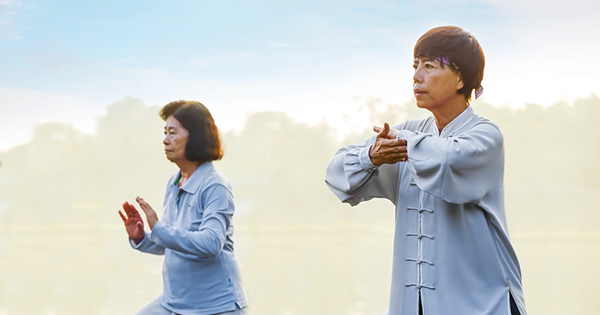
Another mental factor is attachment (or fixating, however briefly, on one thing, which results in practitioners missing other things). We do not really have the mental capability to multitask and can at best rapidly switch from one task to a second, while adding a third is too much for us and we will drop our focus on one of the three. This is the factor that Zen swordsmanship often addresses, cautioning about fixing the mind on the opponent’s sword, defense tactics, particular techniques, and even the possibility of death.
A Japanese Zen expression is “mushin no shin” (無心の心), meaning “no-mindedness” or a mind that is not fixated on thoughts or emotions and is therefore open to everything. This is comparable to the Chinese philosophy of “wei wuwei” (為無為), which is typically translated as “action through non-action”. But this non-action is accomplishing things rather than doing nothing, and is comparable to natural actions (going with the Dao 道,or the way of nature) , i.e., a mind that is spontaneous and open to what is, in every situation, rather than having a preplanned, deluded, or fixed mentality. We strive for uninhibited/unimpeded and instantaneous actions (in sports this is often referred to as “being in the zone”).
There may be better ways to express this concept in Chinese, but “wuwei” is often used by Taijiquan teachers. The concept expresses an ability to do things because the preparation is already done; the system is already primed; the practice has been such that the specifics no longer need focused thought, etc., and therefore the actions appear to be natural and spontaneous. But it takes a lot of training to arrive at this level of ability!
It is human nature that the more decisions we need to make, the worse our choices become. This is due to stress and emotions, so Taijiquan tries to cultivate a calm mind and a spirit at ease, even during confrontations. It is also not uncommon for humans to have an aversion to decision making, especially when those decisions involve more than two choices. It has also been found that immediate choices (e.g., hitting the brakes when in traffic to avoid an accident) are more natural than planning ahead (e.g., planning speeds, following distances, and lane changes to minimize the need for using the car’s brakes).
The above concepts are addressed in the saying “The basic of basics is to forget about your plans and simply respond to the opponent” (Paul Brennan translation) in the Taijiquan classic attributed to Wang Zongyue (王宗岳). We should respond to the real conditions between us and our opponent rather than trying to impose our will/plans on the situation.
Taijiquan sometimes also addresses this with advice to imagine an opponent when practicing solo (to develop intent), but imagining doing Taijiquan solo when facing an opponent. This is because if we do not fixate on the opponent, then we can respond more spontaneously and not be distracted by mental factors that could grab (or freeze) our attention. We want to avoid fixing our attention on one of the opponent’s hands and having the other hand get us.
Wikipedia (https://en.wikipedia.org/wiki/Attentional_shift) includes the following information on shifting attention:
“Attentional shift (or shift of attention) occurs when directing attention to a point to increase the efficiency of processing that point and includes inhibition to decrease attentional resources to unwanted or irrelevant inputs. Shifting of attention is needed to allocate attentional resources to more efficiently process information from a stimulus. Research has shown that when an object or area is attended, processing operates more efficiently. Task switching costs occur when performance on a task suffers due to the increased effort added in shifting attention.”
If one can develop an overall view of a situation, then resources will not be taken from one place in order to focus on another, and one can avoid the “task switching costs” mentioned above. This is like a spider’s broad awareness when in the center of their web.
Thinking about the opponent leads to a focus on the point of contact, and this often results in localized actions/responses rather than “whole-body” power (整勁zheng jin) that come from the legs and waist. We want to react with appropriate actions free from likes and dislikes, fear or hate or other emotions, and without resistance (opposing the opponent’s force).
It is often difficult for people to control their emotions, but the emotions of others are often easy to detect. This can come into play during combat. One who acts timid and frightened is often the recipient of bullying and aggression, and often is preyed upon by others, whereas someone who is calm and confident presents an appearance of a potentially more dangerous opponent. Anger can make one appear fierce and dangerous, but that person is also less in control. Taijiquan should operate more from a calm and adaptable control. A bull that is angered, though dangerous, is typically easier for the calm bullfighter to control.
Most practitioners are able to focus their minds when interacting with an opponent, but sometimes the “monkey mind” (internal dialogue and overactive thoughts) makes an appearance, and is often present during solo practices. But we also want to avoid “tuning out” or becoming distracted. “No excess and not falling short” (無過不及wuguo buji) applies to mental factors as well as physical ones. There should be no obstacle, due to either mental excess or deficiency, between one’s intent and one’s action.
One may see a bigger and stronger opponent, and the thinking or instinct may be to back away or keep one’s distance from them. But this is often the opposite of what one should do. At a distance, one cannot control the opponent like one can when in closer. Covering (敷fu), blanketing (盖gai), intercepting (對dui) and swallowing (吞tun) are the four techniques given in Wu Yuxiang’s (武禹襄)“Four Word Secret Formula” (四字秘訣Si Zi Mi Jue), and they require proper distancing, when interacting with an opponent, to apply effectively.
Much of what we practice in Taijiquan is to overcome habits, and we have many mental and physical habits that impede proper responses. Habits feel right even when they may be wrong, and therefore they are difficult to change. Overcoming habits is a difficult mental process, and there are numerous additional mental factors that could be written about. As baseball guru Yogi Berra stated: “Ninety percent of the game is half-mental.”



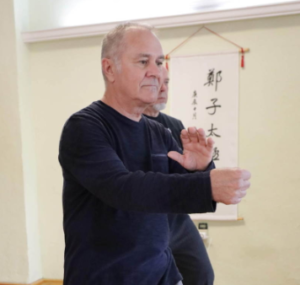
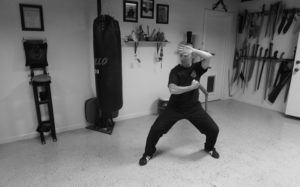
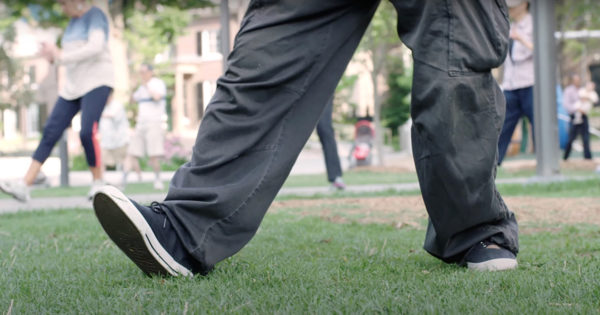
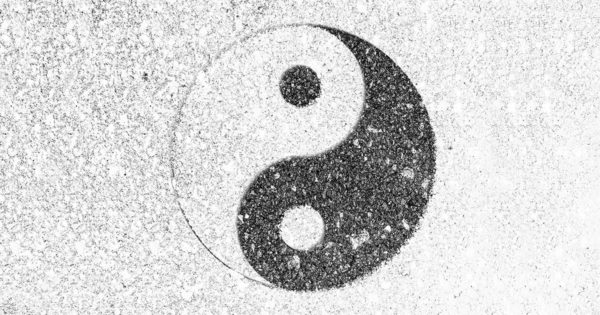



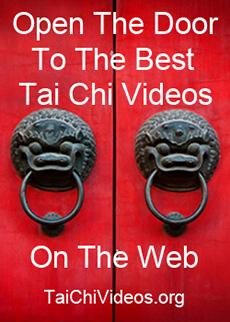

Great text !